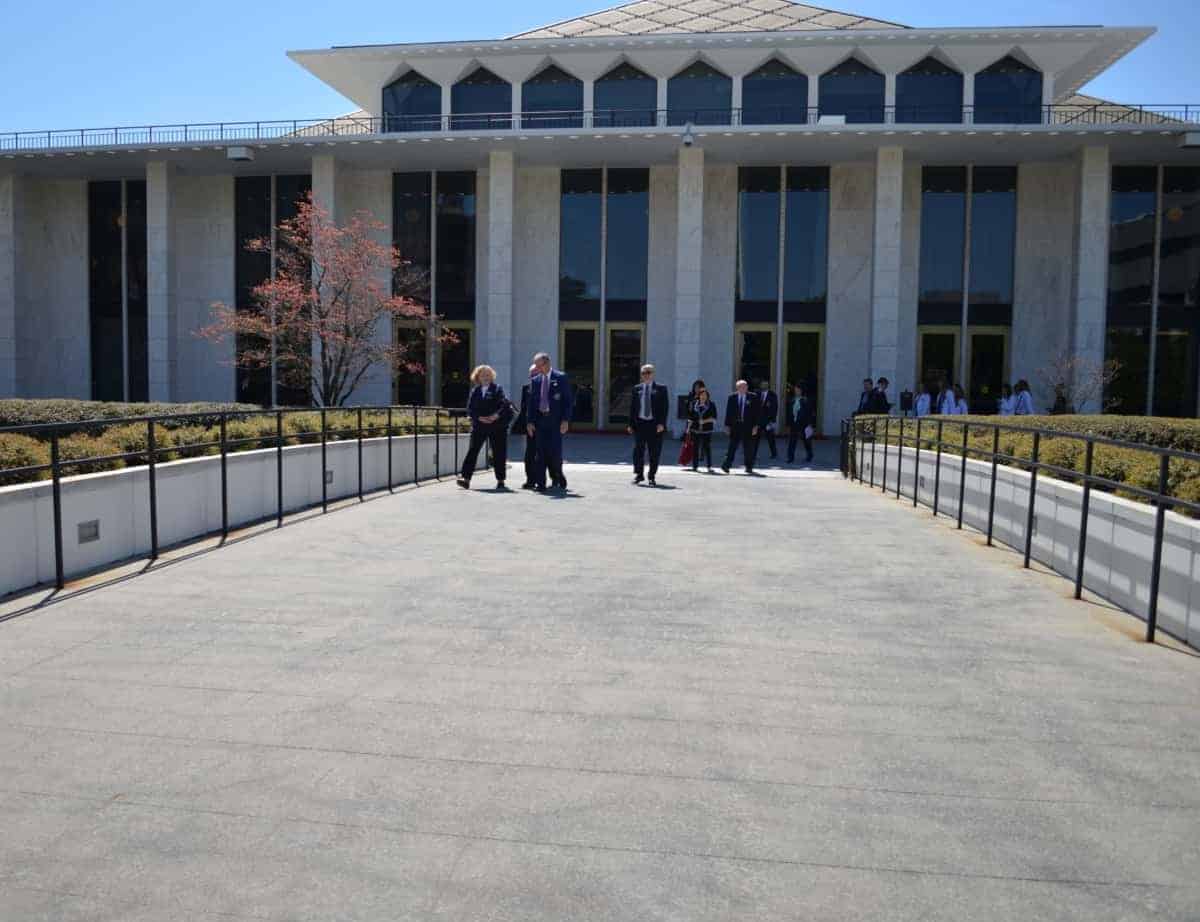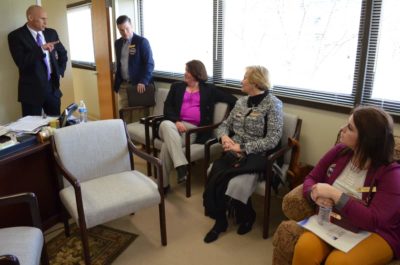As the May 1 teacher rally approaches, things continue to heat up. So far, Chapel Hill-Carrboro Schools have made May 1 a voluntary teacher workday, and Lexington City Schools have also decided to close on May 1. Expect to see the number of districts canceling classes continue.
Meanwhile, State Superintendent Mark Johnson continues to push back against the plan to hold the rally on a school day.
In a letter to educators, Johnson spoke about the downsides of holding a rally when classes should be in session.
“It’s not good for students’ academic and nutritional needs, or for our bus drivers and some other non-certified staff, who may miss scheduled work hours and, as a result, pay.
“As you consider the different ways you can influence your state government, I ask that as an alternative to Wednesday, May 1, you consider taking action on a day when schools are not in session.
“Consider scheduling meetings with your representatives during spring break. I plan to be in Raleigh for most of the days during the upcoming spring breaks in order to meet with you and legislators. As meetings are scheduled, we will be working with legislators to join you. There is also the opportunity to organize a march in Raleigh one day in June right after the traditional school year ends.”
Johnson characterized the need to keep schools open as especially crucial given the large number of days missed by students due to the impact of hurricanes this year.
He also touched on legislation that would use state allotments for classroom supplies to give teachers $400 each to make their own purchases. The issue faced criticism last week because there is no extra money allotted, and giving the funds directly to teachers means taking most of the responsibility for purchases away from districts.
“When I visit schools around North Carolina, I talk to teachers, hear your concerns, and bring your ideas back to the capital seeking results. These visits and discussions most recently resulted in legislation introduced just this week that would give you direct control of $400 to spend on classroom supplies as you, the teachers, see fit. Also, I am working with the General Assembly to increase the total funding for classroom supplies that goes to your districts.”
This won’t be the last you’ll hear on this subject. Expect more and more K-12 news as the rally approaches.
Legislation passes the House
Also, last week, two relatively big pieces of education legislation passed the House.
House Bill 377 would change testing at the K-8 grades by getting rid of end-of-grade tests and replacing them with three shorter tests, dubbed “check-ins” throughout the school year. In high school, the end-of-course tests would be replaced with a national standardized test, like the ACT. NC Final Exams and graduation project requirements are also nixed.
Local school systems wouldn’t be allowed to add their own standardized tests to the mix as part of this legislation.
The State Board of Education also met last week and added their voice to the chorus of critics of over-testing.
They voted to eliminate the N.C. Final Exams for science in fourth grade and for social studies in both fourth and fifth grades.
House Bill 315 would give districts more flexibility on how they spend instructional material money. They would be able to use those funds on things like digital learning tools, iPads, and smart boards, in addition to textbooks.
The bill would also let parents review and challenge instructional materials used by districts.
Both House bills now have to be heard by the Senate.
Community colleges
At the same time all this was happening, community college advocates from around the state descended on the legislature to advocate for their spending priorities. On the same day as the State Board of Education, the State Board of Community Colleges held its meeting as well.
As someone who covers both boards, the two stand in stark contrast. The subject matter in K-12 discussions is always more controversial, volatile, and divided. And the discussion in the legislature on K-12 education is always more partisan than when it comes to community colleges.
What struck me this week, as I tagged along with the community college advocates, is the uniformity with which they were greeted by both Republicans and Democrats. Everyone seems to love the community colleges, and all lawmakers seem to support their requests. The only sticking point is whether the money will be there to fulfill them.
Take the views of two separate lawmakers: one a powerful Republican, and one a powerful Democrat.
House Speaker Tim Moore, R-Cleveland, said:
“We try to decide where are we spending money wisely, where are we doing it right?,” he said. “…The community colleges are the best bangs for the buck that we have in terms of the money we spend.”
Senate Minority Leader Dan Blue, D-Wake, said:
“Legislators … all will be in favor of doing what you tell us we need to do to make this the best community college system in the United States,” he said.
It makes me wonder what the state’s K-12 system can learn from the community college system. State Community College Board meetings focus on the technical aspects of running a system: What do colleges need? How can we help? There is no political ideology of any stripe seeping its way into discussions. If I didn’t know already, I would have a hard time figuring out whether board members are Democrat or Republican.
Is there a way for K-12 advocates to tone down the rhetoric and focus on the issues in a way that doesn’t raise the hackles of opponents? Can partisans of all stripes put aside ideology and make K-12 education policy about problem-solving and what is in the best interests of our students?
No doubt, members of both political sides would argue that’s already what they’re trying to do. But that’s where the community college system comes in. If K-12 advocates are trying to focus on the issues and, instead, encountering political roadblocks, perhaps they can look to their postsecondary compatriots for some strategies on how to make it work.



